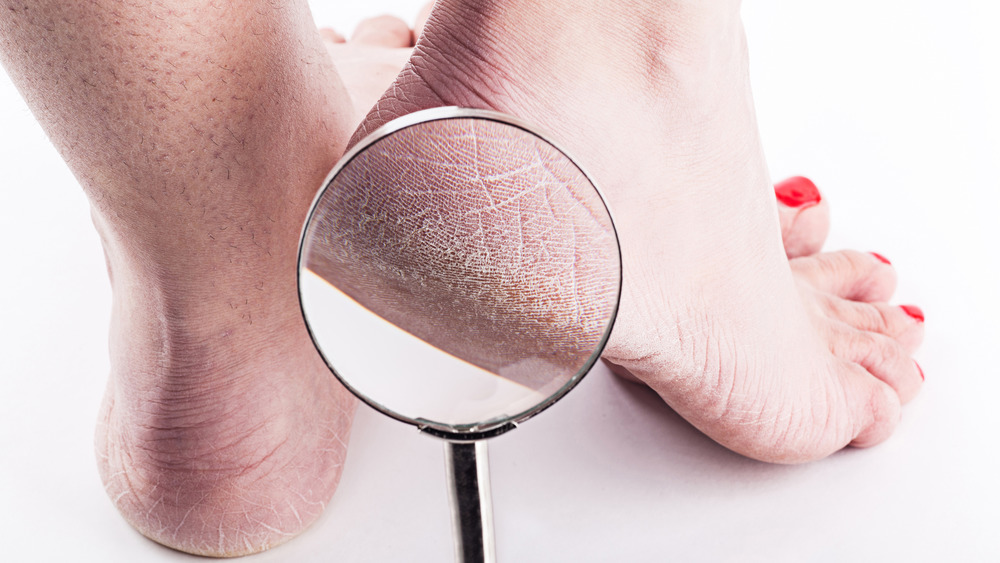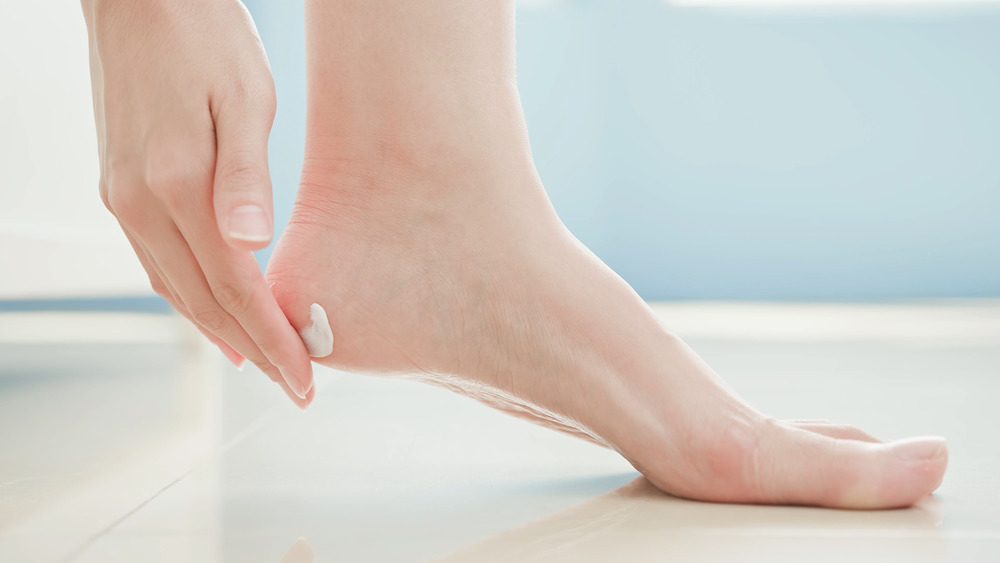Why Having Cracked Heels Might Mean More Than You Think
Along with holiday cheer and winter fun also comes a familiar nuisance – dry, flaky, and even cracked skin. And hands aren't the only extremities that suffer. Our heels may be even more susceptible to becoming dry and cracked because we're more likely to neglect them. Out of sight, out of mind.
There are several reasons that heels become dry and cracked. Samer Jaber, MD, founder of Washington Square Dermatology in New York City, told NBC News, "Cracked heels occur when you have a disruption of your skin barrier. It can be from a medical condition, like psoriasis or eczema, or can occur when your skin is very dry." Dry winter weather can wreak havoc on skin health, and skin naturally loses moisture more easily as a result of aging, too.
Cracked heels could also be a sign of vitamin deficiency. Vitamins E, B-3, and C are all essential for skin health and contain antioxidants, which protect cells against damage from free radicals. A deficiency in one or more of these nutrients can lead to dull, dry skin, which is then also at risk of premature aging (via Healthline). Thankfully, a balanced, nutritious diet that incorporates plenty of fruits and vegetables, lean proteins, and healthy fats makes it easy to avoid deficiencies in any of these areas.
Keeping heels clean and moisturized can help with dryness
In most cases, cracked heels are nothing more than a minor nuisance, although in rare instances the condition could become more serious. "When the heels are cracked and peeling, it means that the skin barrier is disrupted, so the skin loses hydration, becomes inflamed, and is at an increased risk of developing infections," says Joshua Zeichner, MD, director of cosmetic and clinical research in the dermatology department at Mount Sinai Hospital in New York City, told Well+Good. "Good skin care can help minimize this or prevent it from developing in some cases," he continued.
Showing your heels some TLC by keeping them clean, moisturizing after every bath or shower, and using a pumice stone or loofah to remove dead skin cells will help keep them smooth and healthy. But if the condition still doesn't improve, or if the cracks are painful or bleeding, it's a good idea to check in with your doctor.


